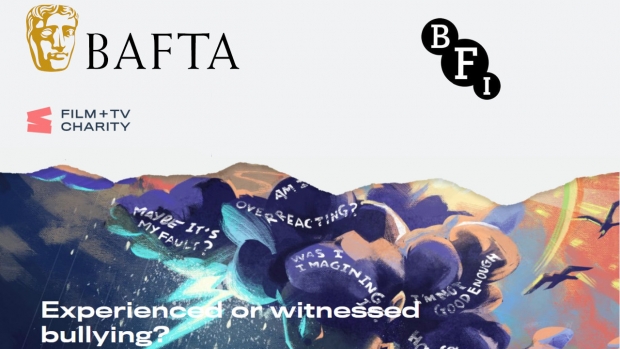Guidance outlines employers legal and ethical responsibilities; new suite of The Film and TV Charity services provides immediate support for victims.
The BFI and BAFTA have issued a new employer Action List for the film and television industry, joining the one already in place for the games industry. It was issued as part of the next stage of their ground-breaking efforts to tackle bullying, harassment, and racism in the workplace. Coinciding with this, The Film and TV Charity has launched new services, providing immediate support for workers. The announcement comes as Equality and Human Rights Commission (EHRC) guidance on harassment at work is expected to become a statutory code of practice in the coming months, as filming restrictions and remote working during the pandemic have created additional pressures. The list is part of an industry-wide mobilization and call for employers to commit to meeting legal and ethical responsibilities.
“We’re pleased to see the BFI and BAFTA taking clear action to ensure that bullying and harassment and racism issues across UK screen industries are dealt with.,” remarked Deputy Chair of the Equality and Human Rights Commission Caroline Waters. “The Action list will help to minimize the possibility of incidents and ensure legal compliance which will protect both employers and workers.”
The Guidance outlines laws around bullying, harassment, and racism, and includes sexism, ableism, homophobia, and other forms of discrimination. It sets out employer’s responsibilities, providing advice for employees and freelancers. A supporting “Dignity at Work Policy,” developed in partnership with Bectu, provides a template for companies, productions, and festivals to complement the “Guidance and Principles” to tackle workplace bullying and harassment. It also recommends taking the new ScreenSkills online training module on bullying and harassment, and ensuring all employees and freelancers are aware of the new suite of bullying support services.
The new suite of services launched by The Film and TV Charity provide support for individuals who have experienced or witnessed bullying including: the Bullying Pathway Service, accessible via the charity’s existing free and confidential 24-hour Film and TV Support Line 0800 054 00 00, offering free, confidential and independent industry-specific legal, HR and mental health advice; and digital incident-recording tool Spot, accessible via the charity’s website, which can be used by anyone to create a confidential private record of something they’ve experienced of witnessed. The new services have been created as part of the Whole Picture Program, the pan-industry movement for better mental health. More information is available here.
“The Film and TV Charity is pleased to be part of this pioneering pan-industry commitment to end bullying and harassment,” commented Head of Mental Health and Wellbeing at The Film and TV Charity Lucy Tallon. “Our research identified bullying as one of the leading causes of poor mental health in our industry. The personal testimonies we heard and continued to hear are shocking. We must do better as an industry. The Film and TV Charity is launching a suite of services to help those experiencing or witnessing bullying navigate their options. Individuals can come to us for self-help resources, for professional advice, and for access to a safe digital space to record experiences in private. These services are part of our strategy to make sure everyone working in film and TV has better support and better mental health.”
As previously announced by BAFTA, entrants for the 2021 BAFTA Games Awards have been asked to provide information on their companies’ anti-bullying and harassment guidelines. The data collected will be used by BAFTA to see where support, guidance and training can be offered, if necessary. The move is part of a renewed commitment from BAFTA, following the 2020 Review, which marks the beginning of a significant cultural shift in the organization, challenging the industry to address the serious lack of opportunity and equality.
“We’re delighted that so many organizations across the screen industries have already adopted the Guidance and Principles, but we know from our conversations with industry that more structured support needs to be within every workplace to prevent and reduce instances of bullying, harassment and racism,” noted BFI head of inclusion Jen Smith. “The Guidance, Principles, Dignity at Work policy and the Action List are working documents that we will continue to refine, as well as building even more complementary resources.”
Source: BFI








